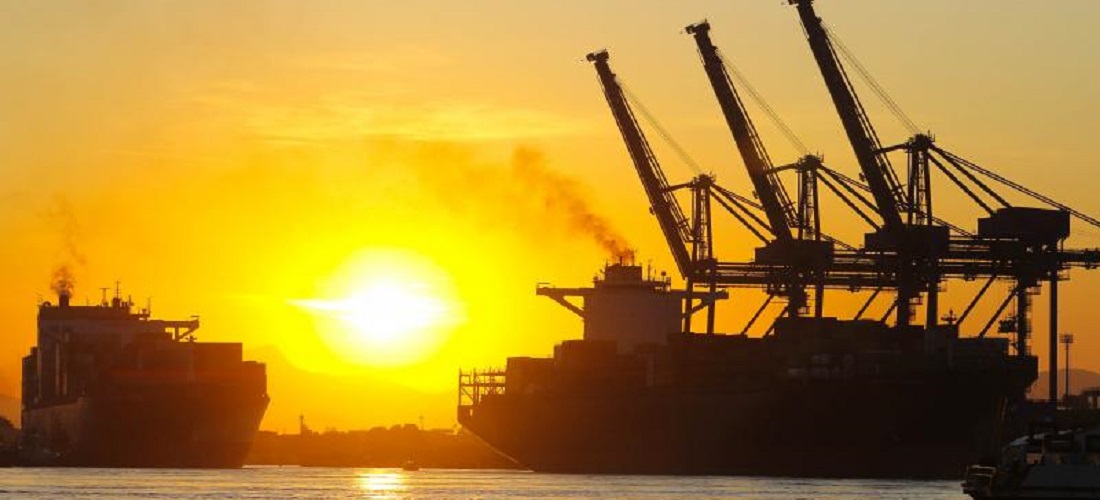
Tunnel Project Between Itajaí and Navegantes and Study for Itajaí-Açu River Dredging Presented at “Santa Catarina Day”
Aug, 28, 2024 Posted by Gabriel MalheirosWeek 202435
The plans for the Itajaí-Navegantes tunnel and a study for dredging the Itajaí-Açu River were unveiled at the event “Santa Catarina Day” in Brasília. The panel, focused on logistics and infrastructure, was organized by the Joint Parliamentary Front of Ports and Airports and the Brazilian Infrastructure Institute, featuring discussions with specialists and authorities. No representatives from the Itajaí Port were present.
During the event, Governor Jorginho Mello received a manifesto from representatives of the shipbuilding industry, shipyards, and maritime companies, voicing concerns about the potential effects of the tax reform regulations on the sector. The entities warned that the proposed legislation under discussion in Congress could threaten the industry’s competitiveness, risking losses for shipyards and maritime companies due to the possible end of the special tax regime that provides fiscal relief.
In Brasília, Governor Mello emphasized the strategic importance of logistics for the state’s development. Transportation infrastructure was also a key topic of discussion. The governor signed a contract with the federal government to create the State Logistics and Transportation Plan (PELT), which will assess Santa Catarina’s transportation needs.
For Itajaí, the governor signed off on the bidding process to hire a company to conduct the study for the Itajaí-Açu River dredging project. The study will cover a 10-kilometer stretch upstream from the Itajaí Port. Acquaplan, the winning bidder, will conduct the survey over 150 days for a bid price of R$ 820,000. The project aims to improve navigability in the area, enhance access to private terminals and shipyards, and reduce flooding.
State Secretary for International Relations Paulinho Bornhausen presented on Santa Catarina’s strategic projects, including the Itajaí-Navegantes tunnel. The tunnel is part of the Sustainable Integrated Mobility Project of Amfri, with $90 million in financing already approved by the World Bank. In total, $342 million will be invested, including $120 million in public funds for the tunnel, the regional transportation system, and the coastal mobility project in Balneário Camboriú. Construction is scheduled to begin in the second half of 2025, with $24 million in contributions from the state and $30 million from regional municipalities.
Focus on Logistics
SC Parcerias (SCPar) and Infra SA, a company linked to the Ministry of Transport, signed the contract for Santa Catarina’s State Logistics and Transportation Plan. Infra SA will provide technical consultancy for the plan’s development. Infra SA will have 18 months to deliver the study, which involves strategic diagnosis and planning, focusing on business logistics and infrastructure.
The document will guide the state’s government actions and future investments across all modes of transport, with an emphasis on goods destined for and coming from foreign trade. The contract is valued at R$ 4.25 million, with funds to be provided by SCPar from revenues generated by the operations at Imbituba Port.
Tax Reform
The National Union of Shipbuilding and Offshore Industry, the National Union of Maritime Navigation Companies, and the Brazilian Association of Offshore Support Companies delivered a document warning of the risks posed by the tax reform, particularly the potential elimination of the Brazilian Special Registry (REB), a regulatory framework for Brazilian shipping.
The complementary bill 68/2024, currently under debate in Congress, includes proposals that could end the REB’s tax benefits, which are crucial for the competitiveness of national companies in the sector. The shipbuilding hub in Itajaí and Navegantes, which is home to both large and small companies in the industry, could face significant setbacks if growth is stifled.
Industry representatives are calling for the tax reform legislation to recognize the importance of the REB and retain its current benefits and incentives. Under the bill already approved by the House and sent to the Senate, the REB-related tax exemptions for vessels would be repealed, affecting shipyards and potentially leading to the loss of thousands of jobs and the suspension of ongoing projects.
The national confederation of workers in the sector supports maintaining the current model, arguing that this will allow domestic companies to remain competitive. The organization notes that companies in other countries benefit from substantial subsidies and tax relief to maintain their competitiveness.
Incentive for Tanker Ships
On Monday, President Luiz Inácio Lula da Silva signed a Provisional Measure to stimulate Brazil’s oil and gas sector through accelerated depreciation, which reduces the corporate income tax (IRPJ) and social contribution on net income (CSLL) paid by companies. The benefit applies to new tankers purchased by December 31, 2026. The measure is expected to lead to the construction of more than 15 medium-sized tankers at shipyards across the country, primarily for coastal shipping of oil and derivatives along the Brazilian coastline. The Provisional Measure is already in effect but must be approved by the House and Senate to become law. Otherwise, the benefit will be discontinued.
Source: Diarinho.net
Original text: https://diarinho.net/materia/655636/Projetos-de-tunel-e-dragagem-no-rio-Itajai-acima-do-porto-sao-apresentados-em-Brasilia—-
-
Nov, 28, 2018
0
Brazil submits a sanitary plan to the EU for meat and fish exports
-
Ports and Terminals
Mar, 09, 2022
0
The Port of Sines is Portugal’s alternative for bringing gas to Europe
-
Meat
Feb, 03, 2023
0
Beef: Uruguay exports fall 39% in january, compared to 2021
-
Grains
Mar, 27, 2023
0
Corn: USDA announces sale of 204 kt to China in 2022/23

